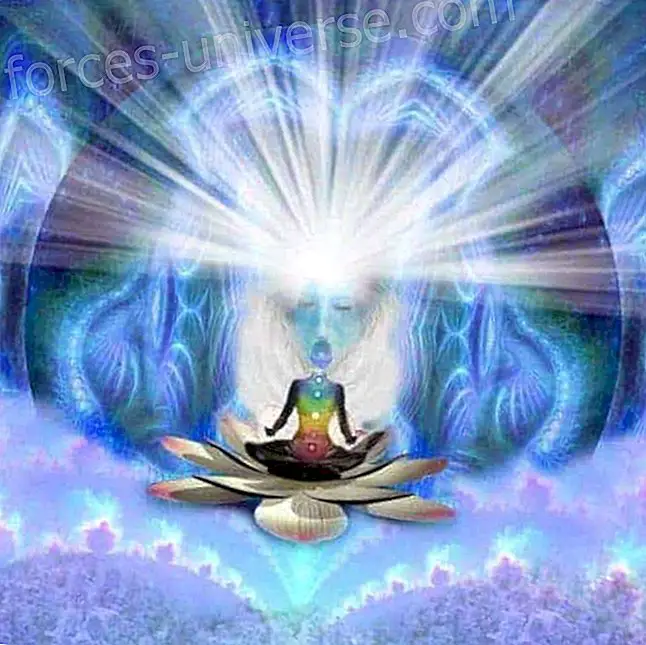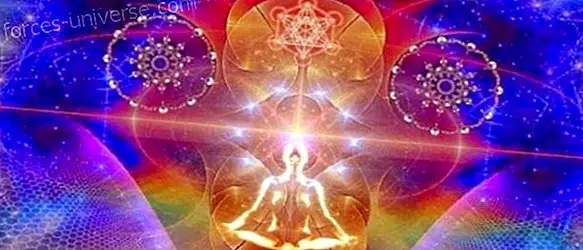
At the same time guiding the wisdom and cosmic story, the Bhagavad-Gita is one of the main sacred texts of India, with the Vedas and the Upanishad. Written in script over 2, 500 years ago, this text offers aspects consistent with the latest theories of quantum physics and astrophysics. in relation to the big bang, of the structure of the universe, or of the energetic and probabilistic nature of matter.
Excerpts and Quotes - This whole living world is understood by me in my unmanifest or revealed state. At the end of an een, all beings go to my nature, then, at the beginning of an een, I issue them again. Dominating my own cosmic nature, I issue again and again this whole set of beings, despite them and by the power of my nature. It is for me, his watchman, only the infant nature of the universe. Here is the reason why the universe exists. ”(Canto IX, 4-15)
“Consider that all beings have a double nature as a matrix. I am at the origin but also the dissolution of the entire universe ”(VII, 6)
“Wrapped in my magic and my yogic power, I am not visible to everyone. This remote world does not recognize me as the Unborn, immutable. ”(VII, 25)
“It is because of the activity of the constitutive qualities of nature that on every occasion the acts are undertaken. But if one lets himself go away by the factitious self, the soul thinks that he is an agent, he who knows the double series of constitutive qualities and acts realizes that it is simply an action of qualities on qualities; consequently it is not related. Away from the qualities of nature, ordinary men relate to these activities of these qualities. Weak, of the truth they only have a parcel knowledge. ”(III, 27, 28, 29)
“This is my magic, divine and constituted by the“ natural qualities ”, is inscrutable. Those who abandon themselves to me, these go beyond this magic. ”(VII, 14)
“Those who, leaning on me, work to free themselves from old age and death, they know Brahman, the entire domain of themselves, the totality of action. "Those who know me in the world of beings, in that of the gods, and at the time of death also, these, the unified spirit, know me." (VII, 29-30)
"Those who see me everywhere and those who see everything in me, I am never lost to him and he is never lost to me." (VI, 30)
"Come on! I am now going to expose you to my divine manifestations, adhering to the essential, or better of the Kurú, because my expansion is unlimited. Of the creatures I am the beginning, the end and the medium. I am the death that takes everything, the source of the things that will come. I am the scepter of those who dominate the peoples, the political art of the conquerors, the silence of the secrets, the knowledge of the connoisseurs. And whatever the form of every being, I am. There is no being, mobile or motionless, that exists outside of me. ”(X, 19-39)
“I am the objective, the support, the lord, the witness, the home, the shelter, the friend, the origin, the dissolution, the permanence, the receptacle, the germ, the immutable. It is I who overheats, retains, or lets the rain go; I am immortability and death; immortability and death; I am who I am the Being and the Non-Being. ”(IX, 18-19)
“Judgment, knowledge, knowledge free of commitment, patience, truth, self-control, pleasure and pain, existence and non-existence, fear and security not prejudice, equanimity, satisfaction, austerity, liberality, honor and dishonor, all these ways of Being, in its diversity as in its uniqueness, come from me. When these processions and this yogic power that are mine are really known, one is unified by an unshakable yoga; on this point do not doubt. ”(X, 4-7)
“I am going to state this connoisseur for the knowledge of what is obtained that is immortal: the Brahman without beginning, supreme; He is told neither to be nor not to be. The properties of all the senses manifest it, but it is devoid of all meaning, without attachment, carries everything and, without quality, experiences the qualities. Outer and inner beings, immobile and mobile, because of their subtlety, is incomprehensible; It is far and close. Indivisible, it is presented as divided between beings. (…) It is said light of lights, above darkness; He is knowledge, the object of knowledge, and the objective of knowledge. It is the home in the heart of each one in particular. ”(XIII, 12-25)
“Every time a being is born, animated or discouraged, know that it is through the union of the field and the knower of the field.” (XIII, 12-26)
“The beings that have a form, ô children of Kunt, in whatever matrix they occur, the great Brahman is their common matrix.” (XIV, 4)
“The entire universe we have here, of mobile and immobile beings, is removed by all these modes of existence and these behaviors. (VII, 15)
“He who really sees, sees the Sovereign Lord equally resident in all mortal beings, being that he is immortal. Seeing the Lord established on all sides in the same way, (…) he achieves the supreme objective. When he comes to discover that the distinction between beings is founded on unity and it is not that a simple expansion of that one, then he accesses the Brahmin ”(XIII, 27-30)
"The man who, abandoning all his desires, comes and goes, free of attachment, says no more:" He is mine, "nor" I "; that access to peace. ”(II, 39)
“It is by attachment to the act that the ignorant act. The wise must act in a uniform way, but without attachment, only oriented to the integrity of the universe. ”(III, 25)
“The one of all the companies is franked of the desire and of hopes or interested expectations, is he that the informed people name a wise person, he whose action is burned by the fire of the knowledge. Abandoning all ties to the fruit of the act (…), he does not ask and expects nothing, the Wise, even if he acts, is not bound. ”(III, 39-43)
"He whose happiness, joy, light, resident in himself and not in external things, this ascetic accedes to appeasement in Brahman." (V, 24)
"Satisfied with what he receives by chance, having overcome the couples of opposites, exempt from selfishness, always the same in success as in failure, even if he acts, he is not bound." (IV, 22)
“The ascetic in whom all evil has disappeared, who disciplines and unifies himself endlessly, easily attains infinite happiness: he becomes confused in Brahman.” (VI, 28)
“The heart free from external bonds, which is his true happiness, he finds inside. His unified soul in union with Brahman enjoys immortal happiness. ”(V, 24)
Translated from Sanskrit by Anne-Marie Esnoul and Olivier Lacombe Editiones du Seuil, collection Points-Seuil






